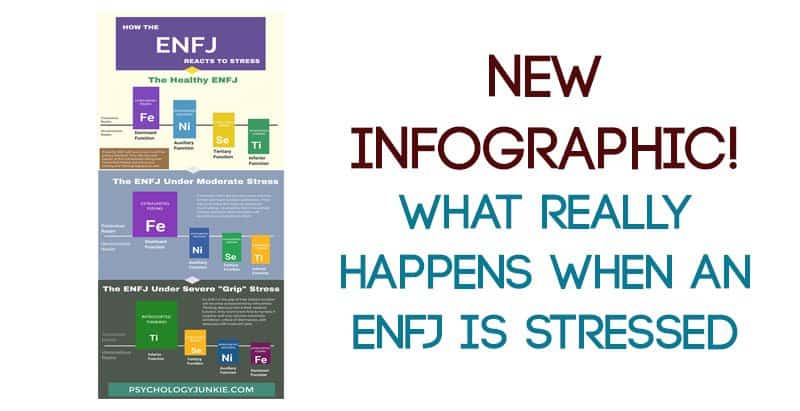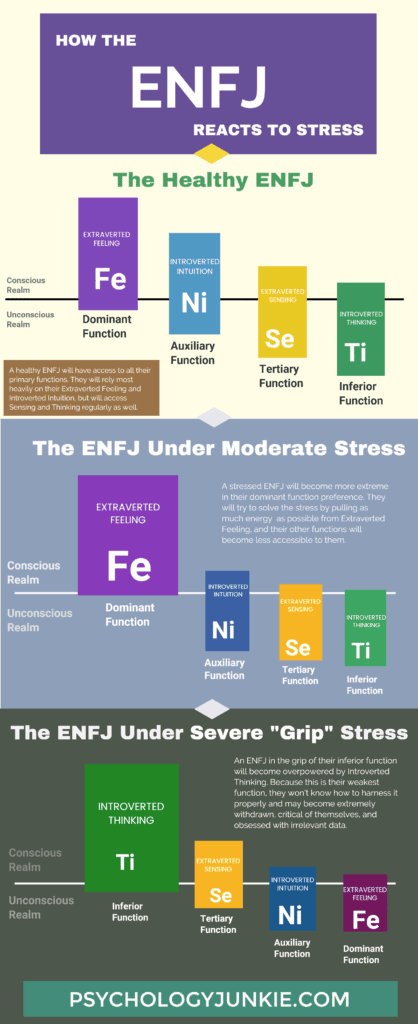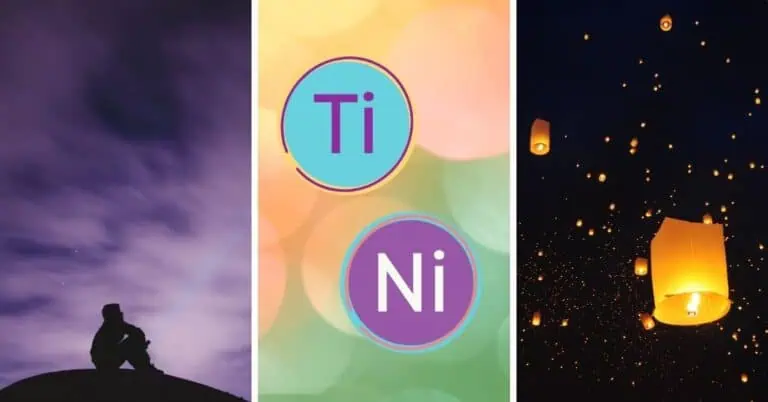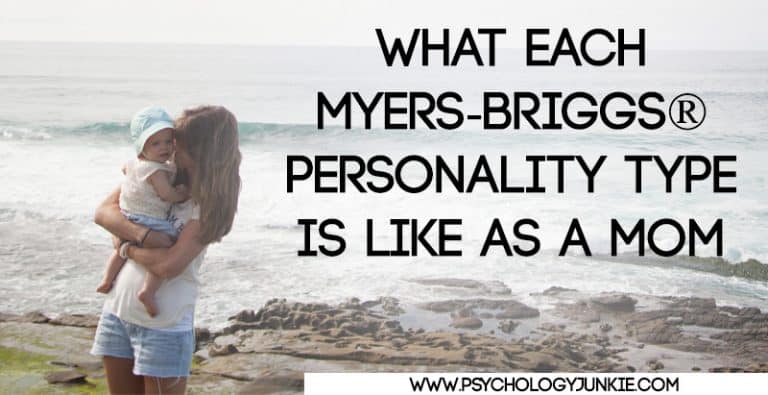How ENFJs React to Stress Infographic
I’ve talked a lot about stress on this blog and how each personality type reacts, but sometimes words aren’t enough! I decided to put together infographics to show what really happens internally when we experience stress. This infographic is for the ENFJs, but I will be posting infographics for each of the personality types over the coming weeks. Don’t worry! I haven’t forgotten the fear posts. Those take quite a while to research and compile answers for, so these are something you can enjoy while those are in process. I would love to hear your thoughts and experiences in the comments!
Want to find more information about how ENFJs respond to stress? Check out this blog post: How Each Myers-Briggs® Type Responds to Stress (And How to Help!)

The ENFJ and Stress









So according to this model of how people react to stress, they first start by becoming more and more extreme and stereotypical in their 1st function and when stress increases beyond that, the 1st function collapses and the 4th function juts out in response? Very interesting…
ok,so how does one reach out to an ENFJ under extreme stress, that u helped add to?
Listen, maintain the respect for the ENFJ person even if you complete disagree with them and/or you are very angry with them. Don’t take it to a personal level… You’re discussing a subject not the person. Do not generalize and remember once again that you are discussing an issue and not the person. During an argument/discussion if you feel hurt verbalize it and make them feel you are being hurt. This might be your best option with an ENFJ as they will immediately relate to your pain. Even in grip stress situations we struggle to organize ourselves and contain our emotions (we do feel lost by the overwhelming feelings we are experiencing) and often the smallest sign of pain or emotion we can relate to is more than enough to stop us from continuing a more intense argument or discussion.
Ask them: “what do you need?” in a loving way always helps. Sometimes they just need a hug
Listen to us. Talk to us. Listen. Validate what we’re feeling. Hugs can help, sometimes…